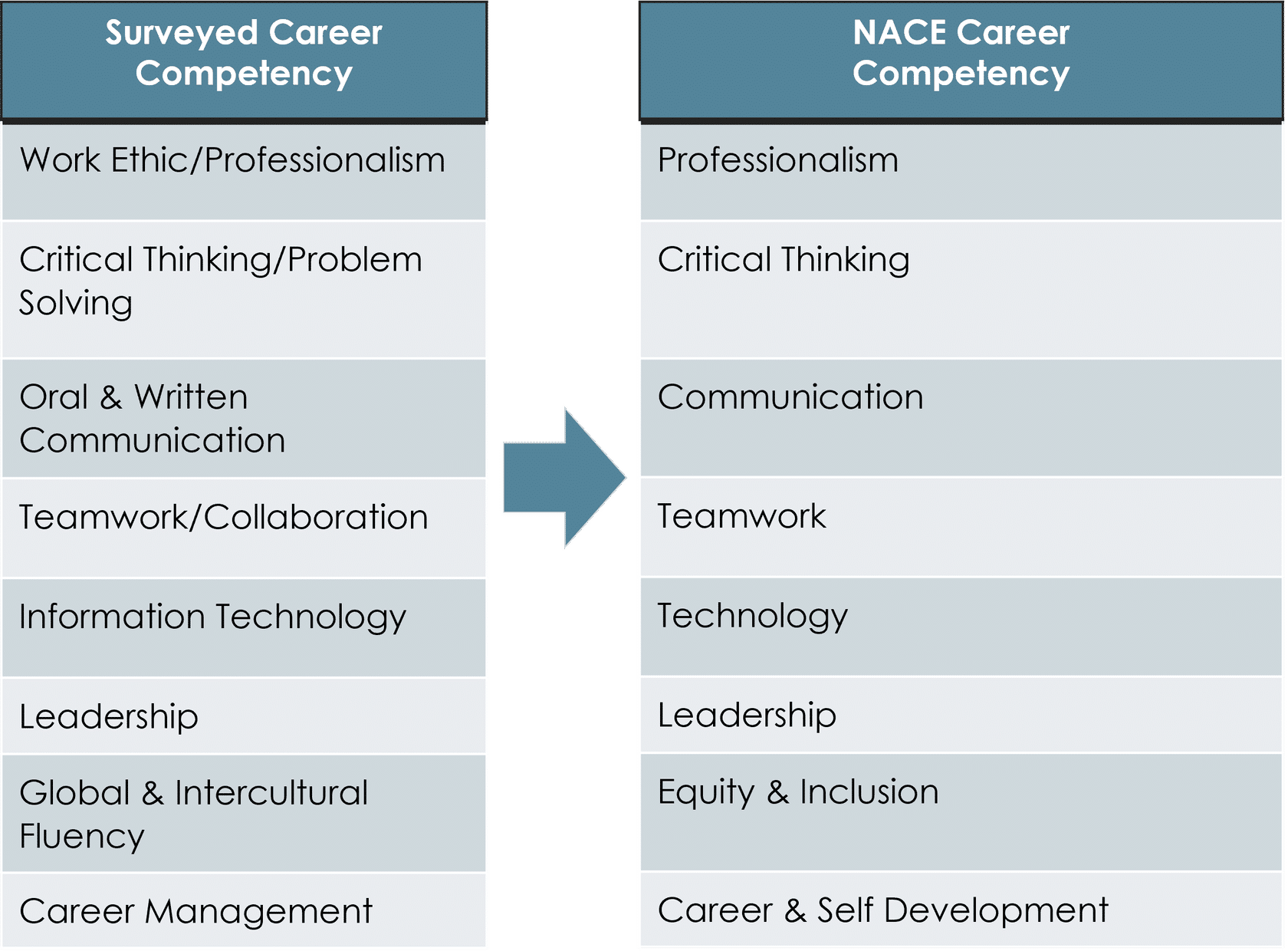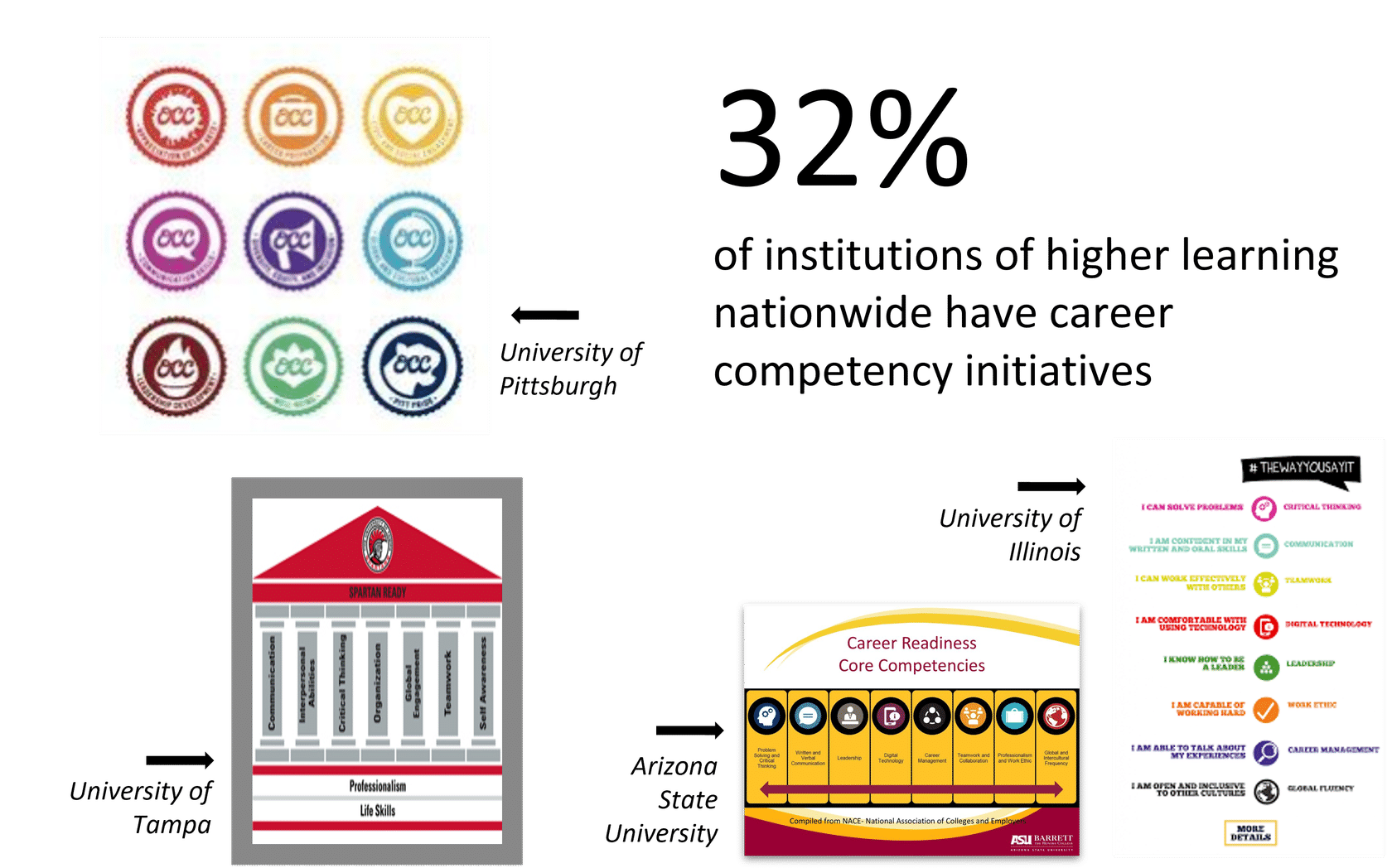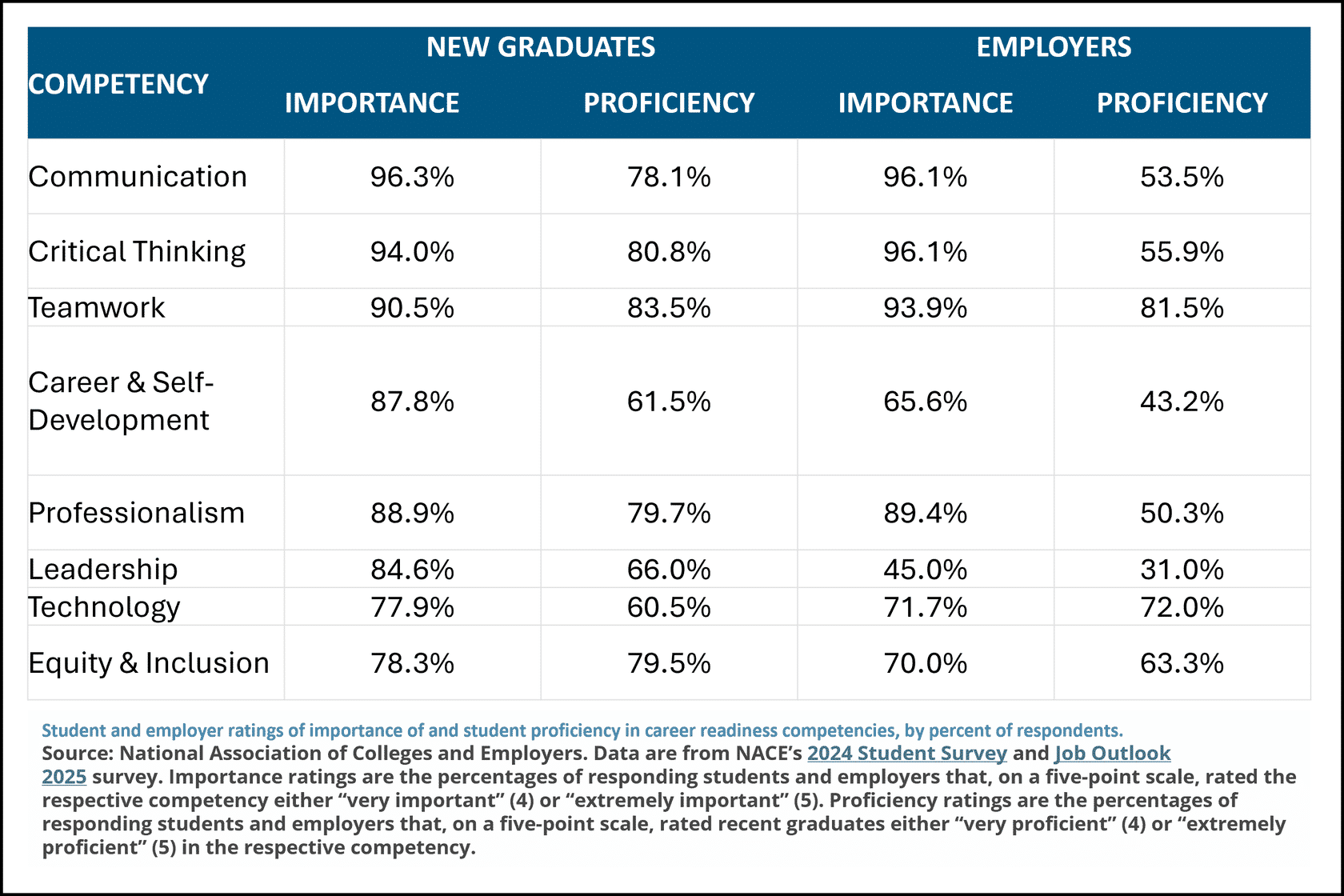
Career readiness lacking in college graduates
A study by the Lumina Foundation and Gallup (originally conducted in 2013) highlighted a persistent gap in workforce readiness. Alarmingly, just 11% of business leaders strongly believed that college graduates were equipped with the skills and competencies their companies needed — a concern that continues to resonate according to survey data from 2024.
In an effort to address this career readiness gap, NACE surveyed over 600 employers from nearly 20 industries ranging from business to STEM to better understand the critical core skills and competencies that graduating students needed to succeed in their early career and beyond. The results of this employer survey highlighted 8 competencies that were universally seen as absolutely essential for students to succeed in their career, regardless of industry.
NACE Employer Survey Data (2013)
Informed by this data, NACE convened professionals in human resources and college career services to identify a set of competencies they would put forward as universally essential across industries that could define career-readiness.

For educators, the career competencies could provide a framework for career-related goals and outcomes of curricular and extracurricular activities, regardless of a student’s field of study. For employers, identifying career competencies was seen as critical in sourcing successful talent, by providing a means of identifying skills and abilities that were universally essential across all job functions. And for students, a career competency framework offered a framework for identifying deficits and developing skills.
NACE Career Readiness Competencies
Since being put forward in 2015, NACE has encouraged individual educational institutions to customize the competencies to best fit their student population and campus culture. As a result, over 32% of colleges and universities across the country have some kind of career competency framework based on the NACE career competencies.
Examples include the University of Tampa Spartan Ready program, Arizona State University Be Career Ready, University of Illinois #TheWayYouSayIt, and the University of Pittsburgh Outside the Classroom Curriculum.

Where are we today?
Recently, data from a 2024 NACE Student survey and NACE Job Outlook 2025 survey revealed that although both students and employers were in close alignment when it came to the high importance of several career competencies, including communication, critical thinking, and teamwork, there remained a gap in the perception of importance between new graduates and employers in others, including career and self-development and leadership.

Similarly, a significant gap remained in the perception of new graduates’ proficiency in the career-readiness competencies and that of employers. This translates to students believing they are significantly more proficient in these areas than do the hiring managers that are recruiting and hiring them.
Career Competencies in the Montgomery County Region
To address this persistent competency gap in our local region, in 2019 USG leadership invited MCPS and MC to partner in an innovative career readiness campaign to strengthen the educational pipeline in Montgomery County based on the NACE Career Competencies. Other Montgomery County educational pathway collaborative efforts, including the ACES program, had proven the benefit to students when our educational institutions work together to improve outcomes for students across the Montgomery County region.
In addition to NACE data, other sources were consulted including USDOE Equipped for the Future (EFF), the College and Career Readiness Standards (CCR) for Adult Education, and University System of Maryland’s Badging Essential Skills for Transitions (B.E.S.T.) to determine how best to customize the career competencies for our unique region. Employer involvement was key to the development of these national best-practice models, and including employer priorities was central to our approach in Montgomery County as well.
What made this country-wide collaboration on a career readiness initiative so remarkable is that it was the first in the country to include a set of customized career competencies with agreed upon definitions and characteristics starting in middle and high school through college.

